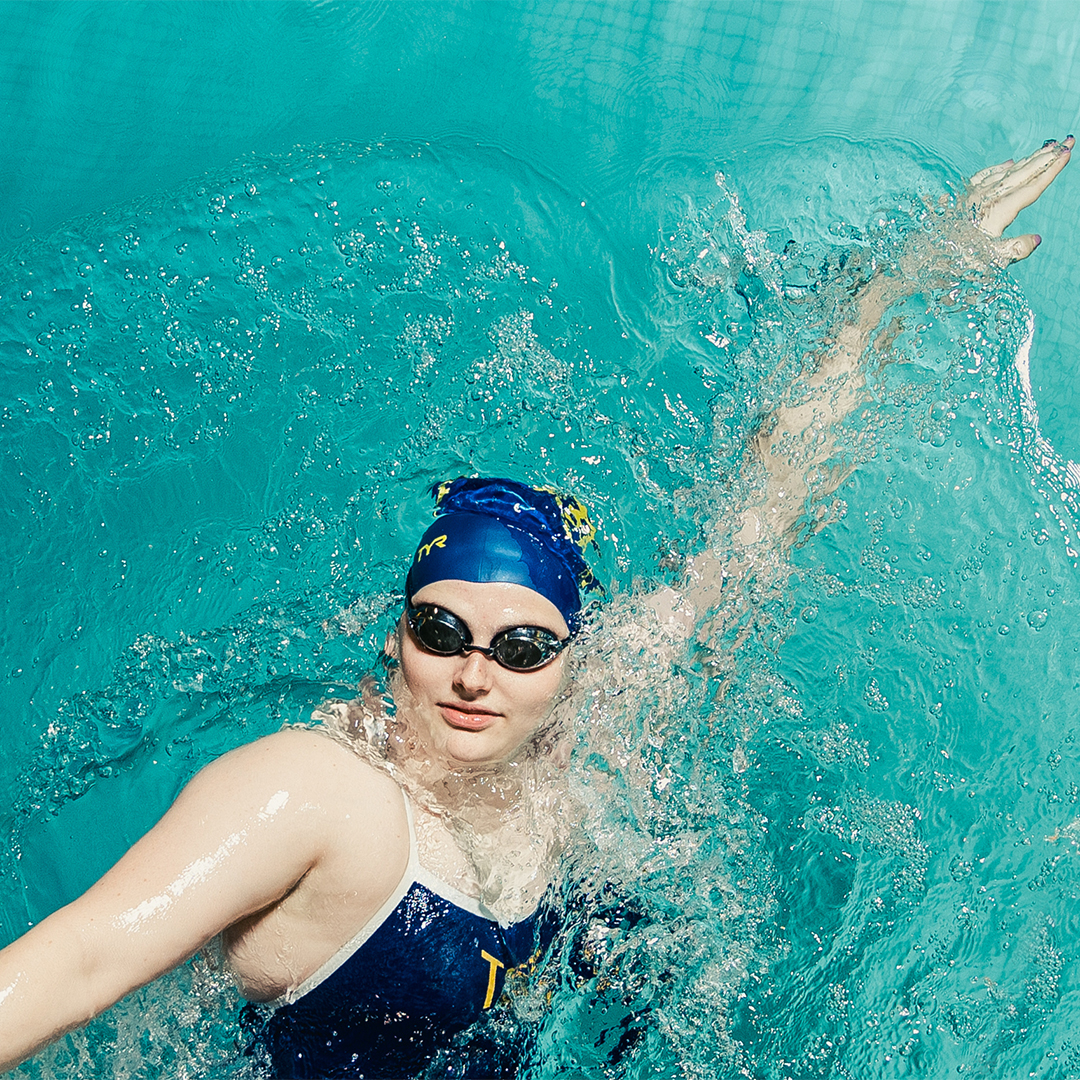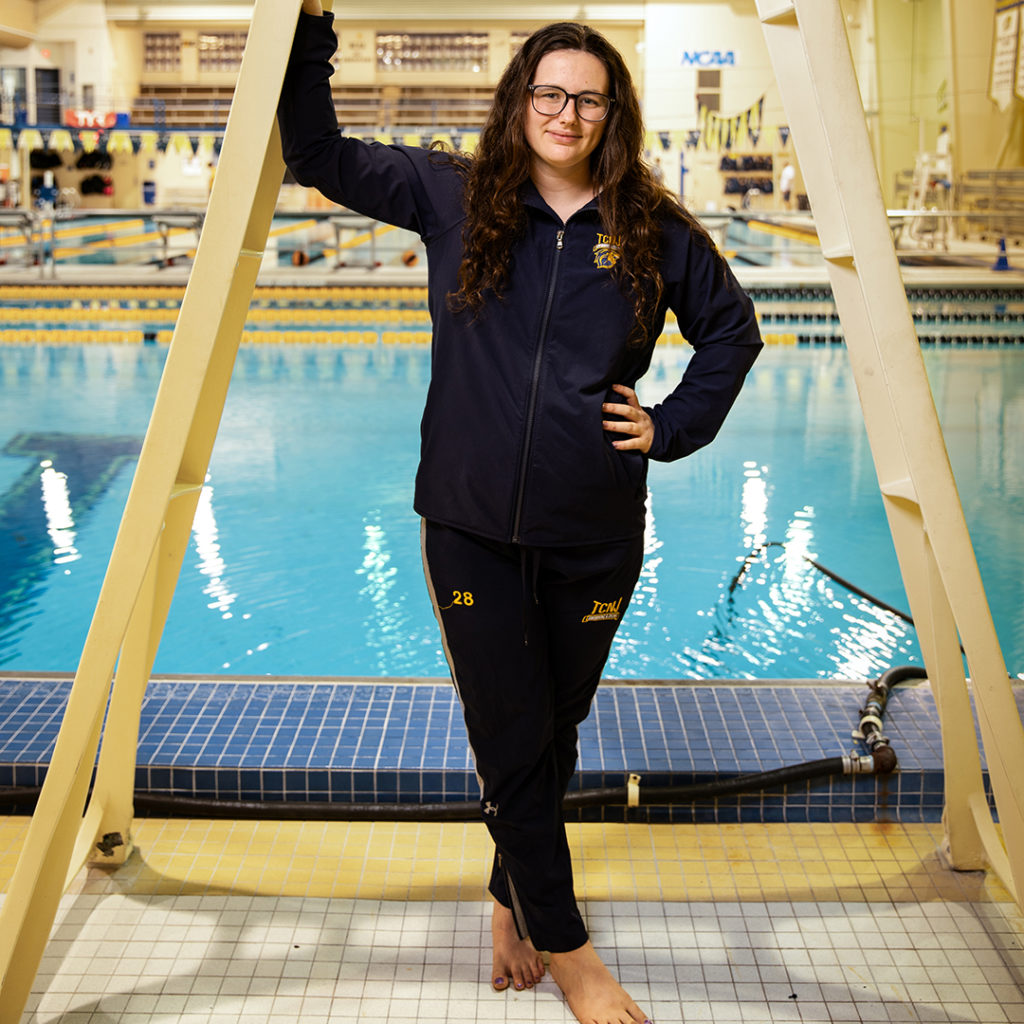How I Got Here: Ren Wolstenholme ’25
With big dreams to live Down Under, this swimmer just keeps ticking goals off her list.

Ren Wolstenholme
My dad was a swimmer. So, when I was a kid, he said, “You are going to swim, too.” I started competing in a summer swim league when I was 5 years old.
The club team I swam with from third grade until my junior year in high school had to shut down during COVID and they never reopened. So, senior year I had to go to a different program and I figured I’d just finish out my swimming career there. But then that program ignited a new love for swimming, and I wanted to keep doing it in college.

I’m a long-axis swimmer, which means the strokes where you’re turning side to side, like back and free. At TCNJ, I swim mostly backstroke and then middle-distance freestyles, like the 200 or 500 meters.
TCNJ’s women’s team is a community where there’s not huge amounts of pressure. I can go and just swim. It’s fun, and that’s what I appreciate.
I have Tourette Syndrome. If I can generally keep my anxiety levels down, that can help control it. But being a college student and athlete, that’s not always an option. Swimming helps because the more tired I am, the less I tic.
I started having noticeable tics when I was 12. Nothing jarring. Just some uncontrollable movements. It feels like sneezes or a shiver down my spine. I also have a whistle tic. People think of Tourette Syndrome as yelling out and cursing. That’s probably only one in 10 people.
I have accommodations in swimming to make sure that I don’t accidentally disqualify myself because I’m ticking. Sometimes I’d flinch on the block, or make a noise before the timer goes off, which you’re not allowed to do. But if I do that, I can’t be disqualified.
A classmate at TCNJ noticed one of my whistles. It was an opportunity to share with my entire class, “This is me.” I tell my story in terms of education, acknowledgement, and compassion.
I’m a biomedical engineering major. TCNJ does a really good job of nurturing female engineers and making sure that everybody is receiving the same opportunities. BME especially is pretty evenly split between males and females.
I studied abroad for a semester at the University of Newcastle in Australia. They have a pilot program in medical engineering, so I got to go check it out and take an engineering elective. I was one of three girls in a class of 78.
Australia was awesome, and I have a 10-year plan to get back. I’m hoping to go to graduate school in the U.S., and then I’ll work in industry or research for a few years to get a solid base of understanding and some savings. And then off to Australia — that’s the goal.
Posted on February 2, 2024

